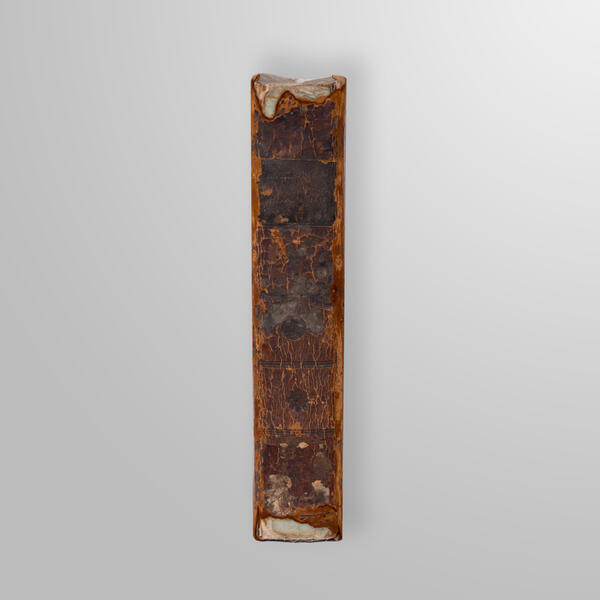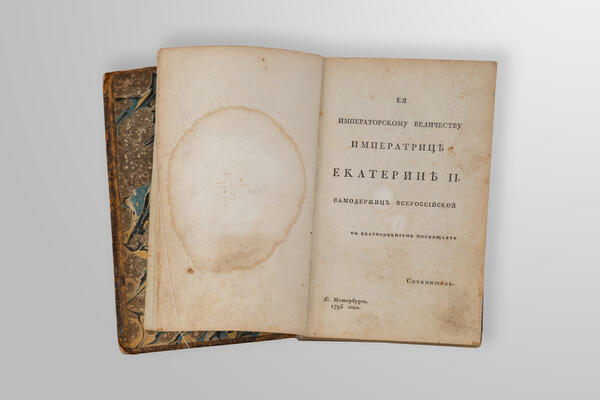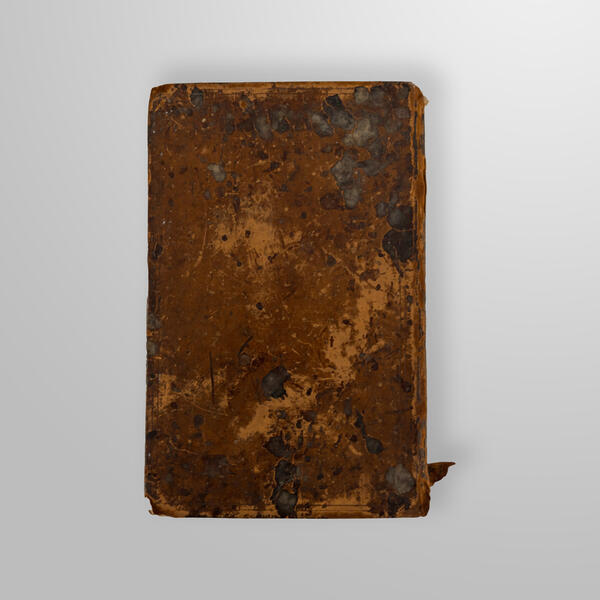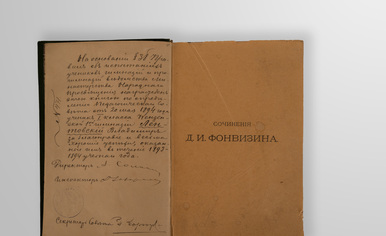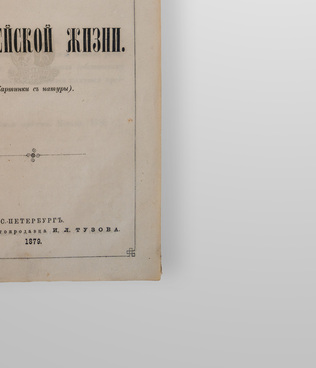The museum houses lifetime editions of 18th-century writers, including Ivan Krylov, Ivan Dolgorukov, and Gavriil Derzhavin. One of these editions is Derzhavin’s “Writings” of 1808. The book is open on a page with the ode “Autumn During the Siege of Ochakov”, originally titled “Autumn in Zubrilovka”.
Gavriil Derzhavin got acquainted with the Penza land as a young man when he was a lieutenant of the Preobrazhensky Life-Guards Regiment. Notes about Penza can be found in his “Journal Kept During Pugachev’s Rebellion”.
In 1786, Empress Catherine the Great appointed Gavriil Derzhavin the governor of Tambov. In this position, the poet exposed many shortcomings of the existing system, strove to improve the living conditions, and established a printing house and a bookstore library with the help of the enlightener Nikolay Novikov. Still, his achievements were not recognized.
Lyubov Gorodnova, a department head at the Tambov Museum of Local Lore, commented that in this situation Gavriil Derzhavin found “a balm for his wounded soul… and a source of poetic inspiration” at the Zubrilovka estate of Sergey Golitsyn and his wife Varvara, 150 kilometers from Tambov.
In 1787, Turkey launched a war against Russia which lasted until 1791. Sergey Golitsyn participated in the siege of the Turkish fortress of Ochakov led by Prince Grigory Potemkin. Worried about his friend, Derzhavin wrote an ode and “not getting… any news about the troops, caught between fear and hope” sent his work to Varvara Golitsyna.
The ode draws upon the traditions of classicism with its poetic manner, lofty style, allegories, rhetoric, and the use of classical images — Prince Potemkin is compared to Mars, the god of war, while Golitsyn is compared to Achilles, the hero of the Trojan War. At the same time, the portraits of the characters are detailed, and the poet expresses his attitude to the events.
Lyubov Gorodnova also drew attention to the “economic,
historical, ethnographic, artistic, and spiritual” description of a provincial
estate. With such details, Gavriil Derzhavin vividly conveyed “the spirit of
his time… the era of wars for access to the Black Sea.”


